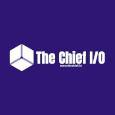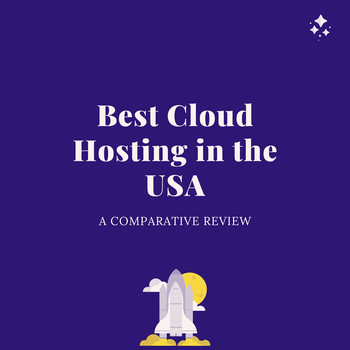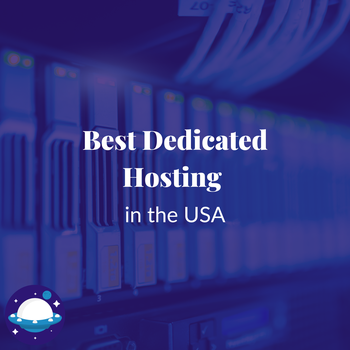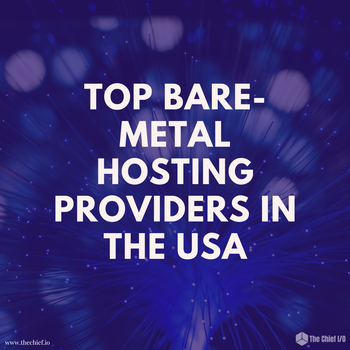Why Golang Is Widely Used in the DevOps and Cloud Native Space?
in DevOps , Programming , Kubernetes , Containerization , Orchestration

The Golang programming language has been rising to popularity in the DevOps community in recent years. The programming language happens to solve most problems DevOps professionals face with other programming languages.
The reasons and statistics of the increasing adoption are discussed in this article.
Golang is one of the leading languages that DevOps professionals adopt, and this is due to the characteristics the language has. Golang is an open source programming language developed by Google to make software building easy, efficient, and reliable. Go is designed to make coding more user-friendly with the built-in garbage-collection, fast compilation, and high performance even when building a large-scale project or complex software.
The prominent players in the DevOps community adopt Go not because it’s so unique but because it makes the work easier while increasing performance. Google wrote most of their services in the Go language, e.g. the service running dl.google.com, sources for Chrome web browser, Earth, Android SDK, e.t.c and that is not based on their love for Go, but because of what Go offers. Other players like Twitter, Medium, and Uber also use Go for their services.
Golang is a popular tool among DevOps professionals, statically typed and loved programming language because of its build and easy deployment feature; it is the fourth most loved programming language and the third-highest paying language according to a survey by StackOverflow. Also, in the survey, it was noted that DevOps professionals liked using Go for their work. Another survey by HackerEarth also revealed that 32% of developers prefer using Go as their programming language.
DevOps requires having some knowledge of a programming language to ensure that implementing its principles yields the maximum expected result. Go is a lightweight programming language, and it enables you to write your code once, compile and run anywhere, even on multi-platform or multi-architecture environments. Another characteristic about Go is the single binary for an entire project, e.g. Consul, Terraform, Vault, e.t.c, which are DevOps-related tools developed in Go are single binaries you can download and use.
Why is Golang an excellent language to create DevOps tools
Go is good and often preferred to build DevOps tools because of its effectiveness and built-in features: The simple statically written code, handy and fast tools, type safety that protects you from code bugs, a feel of the C language that most developers grew with, and the ecosystem of Go libraries consisting of everything needed to build (distributed) systems, developer tools, containerization applications and more.
Its suitability for distributed systems and networks is part of the reasons for adoption in creating DevOps tools. Go is just not too high or too low in level; it fits the perfect spot.
Some features of Go include:
- Concurrency: This feature comes in handy when you need functions to run independently of the other. Concurrency is executed with a goroutine thread of execution, but the goroutine thread should be added at the language level (during coding) before running the function.
- Garbage collection: this feature lightens the memory allocations in your program by tracking down any less-important file taking up space. It manages both efficient and concurrent memory.
- Multi-platform: With this feature of the Go programming language, there’s no need to worry about starting your coding all over again when you move to a new platform.
- Security: As speed and security don’t go hand-in-hand in some aspects of DevOps, it’s different with Go. Go has a very low vulnerability to attacks and still maintains speed, and the compiler always catches errors.
- Ease by compilation: This feature in Go is the one we run our code through to filter errors, generate a binary or executable file before running the program.
Another interesting fact is that the containerization and orchestration ecosystem like Kubernetes and Docker is built using Go.
How do Goroutines and Channels help in DevOps?
Go has a built-in concurrency. Other languages like Python need additional libraries to implement concurrency. Many DevOps tools and systems software (K8s, Docker) are leveraging this to build performant and fast systems while keeping minimalist and simple code.
Goroutines are functions that make concurrency work natively in these system software and frameworks. It is a function that can execute programs independently without disturbing the other function with a different program and method. Channels work as a medium of communication for Goroutines, making it work efficiently by communicating with other Goroutine threads.
Goroutine can be created by using a Go keyword before a function gets executed.
System, DevOps and cloud native tools written in Go
There are several DevOps tools written in Go, the popular ones are Docker and Kubernetes used to respectively containerize and orchestrate workloads.
Other tools written in Go are:
- Prometheus
- Grafana
- Consul
- Terraform
- Vault
- Istio
- Vitess
- Etcd
- Fleet
- Traefik
- Hugo
- CockroachDB
Why is Docker written in the Go language
As mentioned earlier, Go is a simple to use, efficient low-level programming language but can handle system projects; this is part of why the Docker team adopted Go to build Docker. The Go language empowered the team to work with their preferred operating system, Linux, which is part of the many unique features the programing language has.
Docker's virtualization technology is responsive because of Go, and it makes Docker users able to incorporate Docker's capabilities into their environment easily. Go, with its ability to execute low-level system calls, made building Docker faster and less time-consuming than other programming languages. It is an advantage to the Docker team because Docker doesn’t require many system resources to run it.
Why is Kubernetes written in the Go language?
Kubernetes was developed by Google using Go because of the same features. Kubernetes is a container cluster management system that allows you to run multiple containers across multiple hosts, automate deployment and scale. And for Kubernetes to achieve this level of complexity, there is a need for a matching programming language; this is where Go comes in. Go is simple and minimalist; it has good string processing, compilation, low-level system calls, and concurrency features, which are the elements needed to make Kubernetes a complete containerization system.
What about Python in DevOps and Cloud Native environments?
Automation is the ultimate goal of DevOps, so it is the most crucial Python implementation in DevOps processes. Python makes it easy to write simple scripts and applications that can automate significant tasks involved in DevOps processes. These tasks range from monitoring tasks, CI/CD and configuration management automation, deployment, cloud automation extending to SDKs and CLIs.
Python Vs. Golang
Python is a lightweight programming language, but Golang is a lighter-weight programming language by having about 40 times the speed of Python. Though Python might have some advantages over Golang and one of them is its extreme simplicity and a faster learning curve. If you happen to have an automation task, you won’t be slowed down by Python.
An advantage of Go compilation is that it compiles directly to the machine code compared to other programming languages that compile to object code. Another advantage is Golang is statically linked, i.e. when a Go program is compiled, it all compiles into a single binary, and no need for external dependencies. Unlike Python, which uses external libraries, the libraries have to be installed on the program's machine. Golang again beats Python with the feature of being perfectly platform-independent as you can run your Go programs on different platforms and with ease.
Golang performance and runtime also have the edge over Python as it uses fewer resources like CPU, memory, etc.. Golang has a standard built-in library with most of the functionality you need as a DevOps engineer compared to Python, which uses a third-party library.
If you want to implement fast, learn fast and access to a large community and panel of tools, Python is to-go choice, but if you want efficient programs, Go will be a better choice in most cases.
Join our Python and Golang Community
If you're interested in the latest trends in the Python and Go communities and ecosystems, we invite you to join our community FAUN. You'll have access to a weekly email with a bunch of the best hand-curated links (videos, tutorials, stories, news, analysis, tools, and libraries..etc)
These programming languages are used by many types of developers, from web developers, machine learning specialists, networking and security engineers to DevOps specialists. In our newsletter, we curate articles from most of these fields with a bit of focus on DevOps, DevSecOps, and Cloud Computing.
Get similar stories in your inbox weekly, for free
Share this story:

The Chief I/O
The team behind this website. We help IT leaders, decision-makers and IT professionals understand topics like Distributed Computing, AIOps & Cloud Native
Latest stories
Best Cloud Hosting in the USA
This article explores five notable cloud hosting offers in the USA in a detailed way.
Best Dedicated Hosting in the USA
In this article, we explore 5 of the best dedicated hosting providers in the USA: …
The best tools for bare metal automation that people actually use
Bare metal automation turns slow, error-prone server installs into repeatable, API-driven workflows by combining provisioning, …
HIPAA and PCI DSS Hosting for SMBs: How to Choose the Right Provider
HIPAA protects patient data; PCI DSS protects payment data. Many small and mid-sized businesses now …
The Rise of GPUOps: Where Infrastructure Meets Thermodynamics
GPUs used to be a line item. Now they're the heartbeat of modern infrastructure.
Top Bare-Metal Hosting Providers in the USA
In a cloud-first world, certain workloads still require full control over hardware. High-performance computing, latency-sensitive …
Top 8 Cloud GPU Providers for AI and Machine Learning
As AI and machine learning workloads grow in complexity and scale, the need for powerful, …
How ManageEngine Applications Manager Can Help Overcome Challenges In Kubernetes Monitoring
We tested ManageEngine Applications Manager to monitor different Kubernetes clusters. This post shares our review …
AIOps with Site24x7: Maximizing Efficiency at an Affordable Cost
In this post we'll dive deep into integrating AIOps in your business suing Site24x7 to …
A Review of Zoho ManageEngine
Zoho Corp., formerly known as AdventNet Inc., has established itself as a major player in …












